Video MGMT System
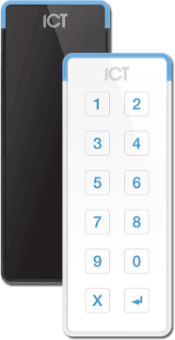 Access Control
Access Control
Voice & Data Wiring
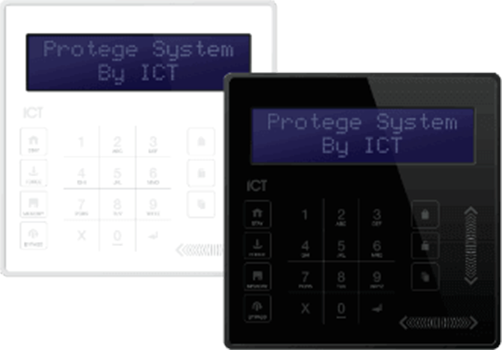 Burglar Alarm
Burglar Alarm
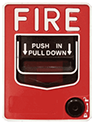 Fire Alarm
Fire Alarm
Video MGMT System
Voice & Data Wiring
Commercial-grade security systems use reliable hardwiring and advanced technologies to provide businesses and institutions with the effective access control, video surveillance, and threat detection they need.
These systems deter security breaches, minimize losses from crime, collect actionable evidence, and proactively protect staff and guests from a wide range of threats.
Also, commercial security systems often include business-friendly automation and management features that promote operational efficiency.
Commercial security cameras, alarms, and smart lock systems deter criminals from targeting commercial properties both by creating security layers that are challenging to overcome and by collecting high-resolution video evidence that is difficult to refute in court. Knowing that premises are monitored and that automatic locking systems secure restricted internal areas makes criminals think twice, pushing them to less secure targets.
Commercial security systems use digital IP security cameras to capture the clearest possible footage. High-resolution footage provides actionable evidence of wrongdoing that rarely leaves room for doubt. Evidence from IP cameras also helps to monitor work areas and ensure that policies are followed by staff.
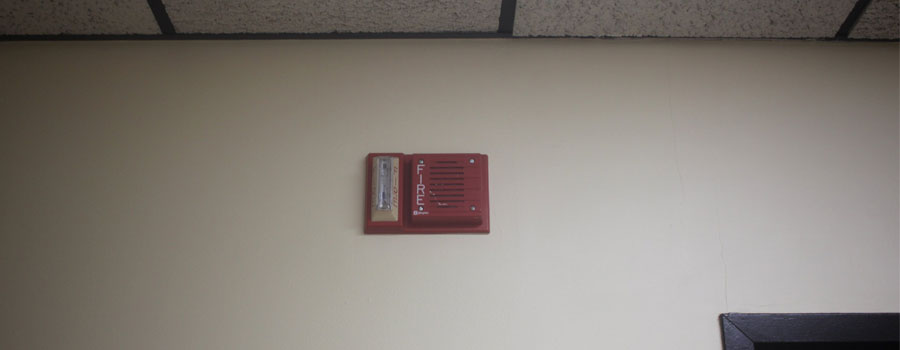
Commercial-grade security systems use life-safety devices to detect threats and alert staff to safety hazards, such as fires and carbon monoxide leaks, that can pose a graver danger than criminal activities. Early warnings enable prompt responses during emergency situations that minimize damage to property and save lives.
Commercial security systems empower business owners to remotely monitor and manage their premises from any location with an Internet connection. Commercial systems are also designed to be compatible with professional monitoring services that keep remote guards on duty even when on-site staff is unavailable.
Most commercial-grade security systems collect data that administrators can audit or use to create automated reports with useful information about workflows, customer traffic patterns, and customer service wait times. These features help businesses identify areas to improve sales and operational efficiency.
Automated data logs compiled by business security systems with smart technology also boost efficiency and reduce the risk of human error by replacing manual sign-in protocols and collecting necessary compliance information.
Commercial security systems include IP security cameras, automated access control devices, and alarm systems that detect intruders, fires, and carbon monoxide leaks.

IP security camera installations provide high-resolution evidence and enable remote access to footage and camera controls.
Commercial access control systems require credentials that must be authenticated and matched with control panel site authorizations. These systems promote efficient workflows by allowing authorized credential holders to move seamlessly while entry data is automatically logged for later audits.
Commercial life-safety systems like fire alarms use specialized sensors to detect carbon monoxide leaks and evidence of fire.
Commercial burglar alarm systems use contact sensors, sound sensors, motion detectors, and other devices to recognize symptoms of unauthorized access, such as a door or window breaks, and movement in areas that should be free of activity.
Commercial-grade security systems connect advanced access control, video surveillance, and threat detection technologies with hardwired data connections for the reliable security that commercial buildings need.
The very best commercial security systems are integrated for easy management on a single interface and data sharing between devices. Intercommunication between devices provides turbocharged situational awareness, fewer false alarms, and the highest level of protection for employees, customers, and business assets.
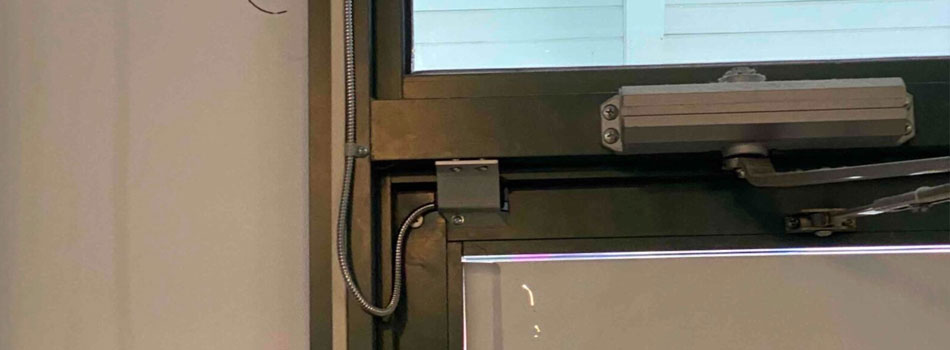
Access control systems use door readers to recognize identifying information contained in credentials. The readers then communicate with access control panels, which contain all data on system users and the specific entry authorizations for each access point in the system. If the control panel finds a match between a presented credential and access permission at the location it has been presented, it will send an electronic signal to temporarily unlock the access point for passage.
Security cameras in commercial systems use hardwired connections to video management software systems. Footage from the video security system is organized for efficient review and retrieval.
Video management software supports quick investigations by featuring smart filters that find needed footage based on factors like date and time. With AI-supported video analytics, many video management systems are able to find footage based on factors like facial recognition and behavior detection.
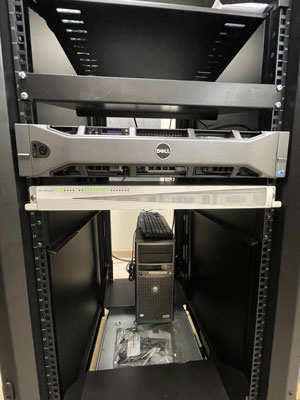
Commercial camera systems can store video data remotely on the cloud, on local hardware devices such as NVRs (Network Video Recorders) and DVRs (Digital Video Recorders), or directly on video management systems.
Burglar alarm systems use motion sensors to recognize movement, and many of them are prone to false alarms triggered by branches swaying in the wind or the movement of pets. However, commercial-grade burglar alarms use more advanced sensors that can be specially configured to minimize false alarms.
Commercial security systems employ a range of fire detectors to minimize false alarms while ensuring early alerts when needed. For example, fire alarms in kitchens may use temperature-escalation sensors to detect fire while smoke detectors have the greatest accuracy in areas without cooking.
IP security systems enable real-time monitoring from multiple camera angles of commercial buildings from anywhere with an Internet connection. Mobile alerts and round-the-clock access to surveillance live streams help security and other staff respond quickly and effectively to security events.
Security system integration is hands down the #1 way to maximize the effectiveness of your entire commercial security installation. Integrated systems enable smart data communication between video surveillance, access control, and threat detectors to minimize false alarms and provide turbocharged situational awareness during emergencies.
Integrated systems also make security management easier by providing a single interface to view and control all security system components—including sensors, alarms, cameras, and access control devices.
DIY security system installations have several limitations and pose unnecessary risks to commercial security.
No matter how good a security system may be when it arrives in the box, improper installation results in degraded functionality or complete system dysfunction. Professional installation of electronic security systems ensures that the system is correctly set up, configured, and tested.
DIY security systems use equipment that is beneath commercial-grade standards. This results in a less effective system that is more susceptible to false alarms, malfunctions, or other issues.
DIY systems rarely result in camera and sensor placements that adequately monitor all areas of a property.
DIY security systems are often sold in pre-packaged kits that aren't customizable to specific business and security needs.
The best security systems are integrated, and DIY systems rarely integrate with other devices. Isolated cameras, access control locks, and sensors limit effectiveness and result in unnoticed security concerns and incidents.
Most DIY security systems don't include professional monitoring services. In an emergency, there may not be anyone available to respond to alerts or dispatch emergency services.
Before selecting a commercial security system for your business, consider factors like your area's crime rate and the nature of your business to make a risk assessment.
For example, security at outdoor construction sites should always pair IP security cameras with remote monitoring services that can activate active deterrence devices and contact law enforcement if intruders enter a site when workers are not present.
On the other hand, fast-food restaurants open 24/7 may not require a remote monitoring service, but they should invest in parking lot cameras and cameras capable of license plate recognition (LPR) at their drive-thru lines.
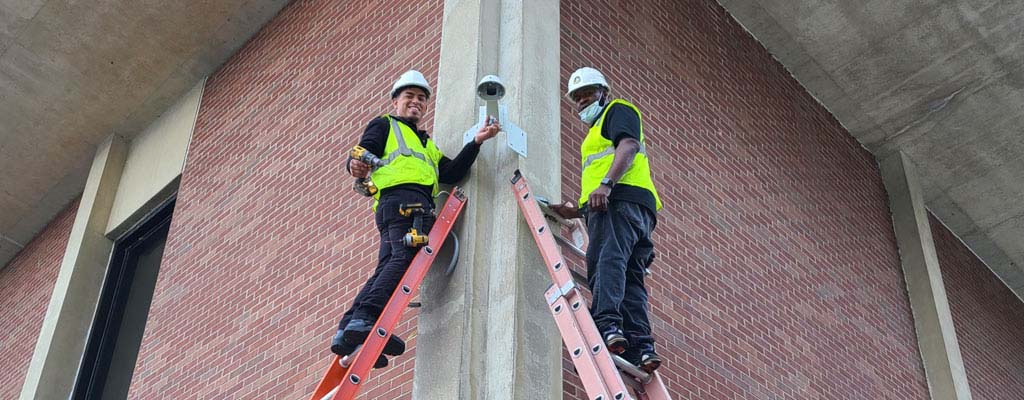
Our expert team at Mammoth Security has the experience and know-how to assess your security needs and develop the best commercial security system for you. By mixing and matching technologies and devices from top-grade manufacturers, we provide maximum commercial security at a lower price. Just provide your name and email in the simple form below, and you'll meet a friendly expert from our team for a free site survey.
NOT COMPLETELY SURE?
860-748-4292